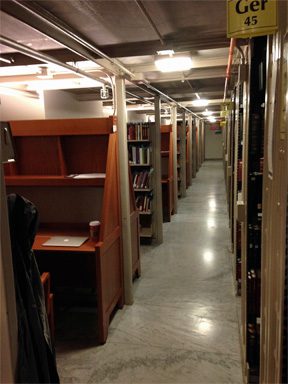Part 15 of series:
The Mission of God and the Missional Church
In my last post, I began talking about how we are sent as a community of the good news to join in the mission of God in the world. I said that our corporate sending is important because: first, we get our training and support from our Christian community, and, second, many aspects of Christian mission cannot be accomplished by individuals working along.
A third reason why we’re sent as a community is this: so that our corporate life will be a vivid demonstration of the gospel to the world. God intends to show all creation his plan for cosmic reconciliation through the reconciled body of believers in Jesus (Eph 3:9-11). In a world so filled with hatred and vengefulness, our mutual forgiveness will announce the presence of God’s reign. When people see our love for each other, they will see Jesus . . . assuming, of course, that we are in fact loving one another! Sadly, our relationships within the church do not always reflect the reconciling work of God. But when they do, the good news shines forth as a light in the world, drawing people to Jesus as a lantern draws moths at night.

I am reminded of another story from my days in college. I was actively involved in the Harvard-Radcliffe Christian Fellowship, an inter-denominational student group on campus. During my senior year, a freshman named Tom joined our fellowship. Before too long, Tom found himself in the midst of an excruciating faith crisis. Try as he might, he just couldn’t get beyond many intellectual doubts and questions. With his heart, Tom still loved the Lord. But his mind told him that his faith was nonsense. He anguished over the split between his head and heart, crying out to God for help. Wisely, he also called out to some of us whom he knew in the fellowship. We began to spend countless hours with Tom, discussing his doubts, pursuing his problems. Though the outcome often seemed bleak, we kept on walking alongside of him in love. And we kept on praying in hope that God would affirm his existence and love to Tom.
After many months and innumerable discussions, our prayers began to be answered. Tom found resolution for his theological queries. His heart felt God’s love, especially as it came in the form of patience from his brothers in Christ. By the end of his freshman year, Tom not only remained a Christian, but his experience of intimate fellowship with God and God’s people had grown to new depths.
But that’s not the whole story. Tom’s childhood friend, Liz, also walked with him through his year of anguish. Liz was not a Christian, but she did care profoundly for her friend. Sometimes she was present during the marathon discussions we had with Tom about his theological struggles. As the year drew to a close and Tom reaffirmed his faith in Christ, Liz made a most unexpected confession to him.
“Tom,” she said, “I think I believe in Jesus too.”
“Really?” Tom exclaimed. “How did it happen? What made the difference? Did the arguments that helped me also help you?”
“To tell you the truth,” Liz admitted, “the arguments and the ideas mattered only a little. Your friends did help me to understand what it means to be a Christian, something I never really got before. But it wasn’t their arguments that touched my heart, Tom. It was their love for you. They sat there with you night after night. They showed you more patience than you deserved. The more I saw their love, the more I began to believe in the love of God. What they said about Jesus began to make sense to me. That’s why I believe in Jesus.”
Hmmm . . . . wasn’t it Jesus who said our love for each other would prove to the world that we are his disciples? Perhaps one of the saddest things in the world is when Christians can’t even love each other. It’s hard to think of a greater barrier to faith than the failure of Christians to love one another.
Needless to say, to be a part of God’s sent people, you need to join with a community of Christians. Not only is your fellowship with other believers necessary for your own discipleship, but also it has the potential to draw non-believers to Jesus like a magnet. In a world fraught with alienation and individualism, a community of reconciled Christians shines forth like a searchlight upon God’s offer of reconciliation through Christ. Our fellowship together becomes perhaps the most important enactment of the good news, that which demonstrates the success of God’s mission. Through Jesus Christ, God has healed the breach caused by sin. He has reconciled us to himself and to each other, while entrusting to us the message of reconciliation. We are ambassadors of Christ together, sent into the world to deliver and to embody this good news (2 Cor 5:16-21).











